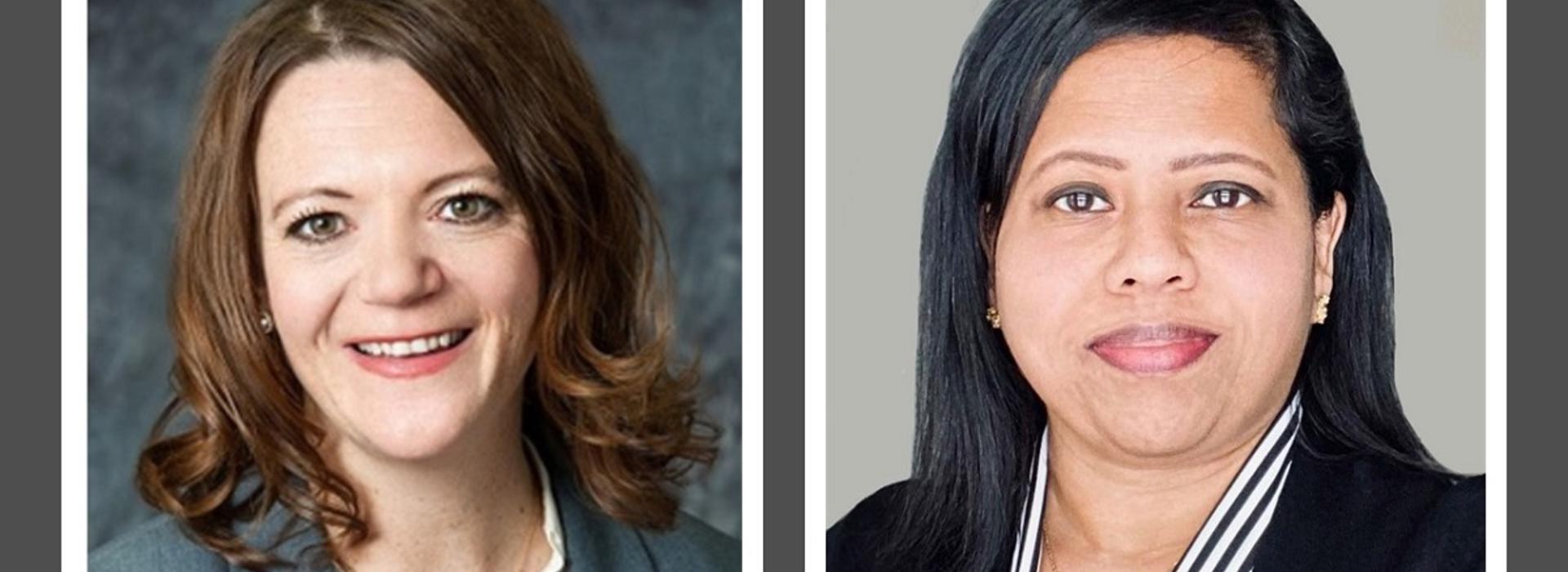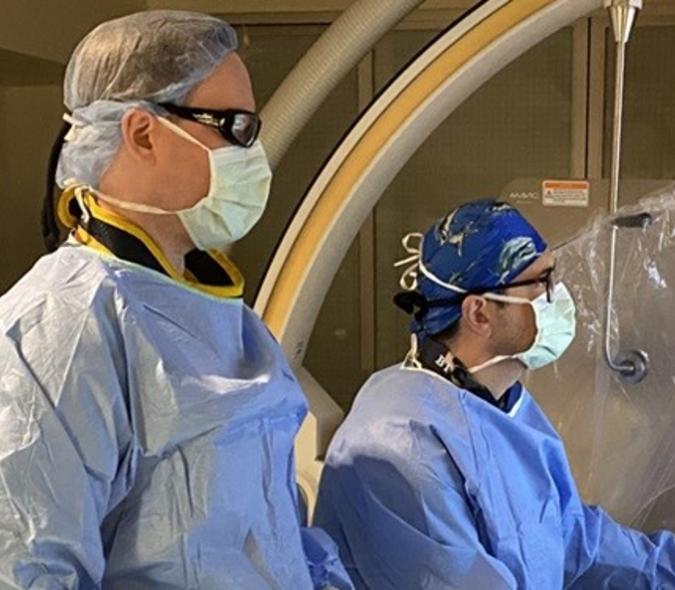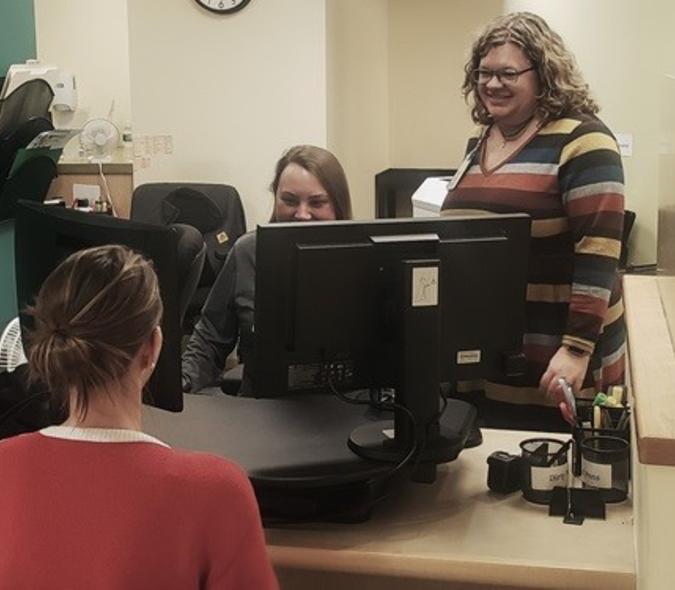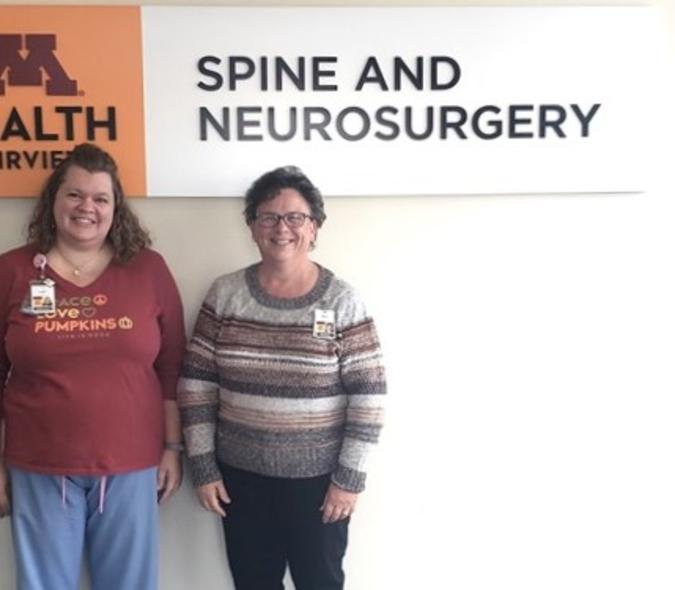
Nurse practitioners play an important role in neurosurgery
Choosing the right primary care provider is an important first step in managing your health, but for many Americans, finding a health care provider to meet their needs can be a challenge, according to the American Association of Nurse Practitioners’ website.
Today, America’s nurse practitioners represent 355,000 solutions to improving patient health. In fact, nurse practitioners (NPs) are the health care provider trusted by millions of Americans, and 80 percent of adults have been treated or know someone who has been treated by an NP.
In all 50 states, nurse practitioners assess patients, order and interpret tests, make diagnoses and provide treatment — including prescribing medications. Most importantly, as clinicians who blend clinical expertise with an added emphasis on disease prevention and health management, NPs bring a comprehensive perspective to patient care.
Working diligently
Nurse practitioners take on an important role in neurosurgical care as well. Sarah Heinle (pictured above, left), CNP; and Seena George (pictured above, right), CNP, work diligently to help their patients navigate what can be complex healthcare requirements.
Both Sarah and Seena were inspired to become NPs because they wanted more direct involvement in patient care. Sarah, who has been a nurse practitioner for 15 years and works primarily with patients on the Neuroscience Unit at University of Minnesota Medical Center (UMMC) noted, “I enjoy taking care of patients and wanted to work in a more collaborative setting. My friend’s mom was a nurse practitioner and I saw how much she enjoyed what she did. She encouraged me to go back to school to further my education.”
Inspired by other nurse practitioners
Seena has been an NP since 2014 and works on the clinical side at the U of M Clinics and Surgery Center. “I graduated from nursing school in 1999 and worked in various nursing specialties afterward,” she said. “I was inspired by the NPs I saw working both independently and as valued team members. I wanted more autonomy and to advance in my career and the nurse practitioners I knew encouraged me to go for it.”
There are many things to like about being a neuroscience nurse practitioner. “Because I follow up with patients for longer periods of time, it helps develop closer relationships with them,” said Seena. “It also increases their comfort with sharing their problems with me.” Sarah likes collaborating with surgeons, residents, nursing staff, and members of other teams such as Physical and Occupational Therapy. “My role helps me build relationships with all these people as we work together to give the best care we can to our patients,” she said.
Managing complex conditions
There are challenges that come with being a nurse practitioner working with patients who have been treated for neurological conditions such as stroke, ruptured intracranial aneurysm, brain tumor, trauma, and facial pain. “Sometimes, clinical judgment can be difficult because we’re managing patients with such complex conditions,” said Seena.
Nurse practitioners must have certain qualities to excel at their jobs. Sarah believes that you need compassion, empathy, a commitment to teamwork, and good decision-making skills. “We also have to be able to prioritize things,” she said. “And we need to be able to maintain our cool during a crisis.”
Seena agrees with Sarah about needing to have compassion. “Our patients and their families are going through a very challenging time in their lives,” she said. In addition, she believes that the ability to communicate clearly is important. “We need to make sure our patients understand what we’re telling them,” Seena said. “We should also be open to accepting their questions and helping them understand their diagnosis better, which helps the entire care team.”
Go for it!
When asked what advice they would give someone who wants to become a nurse practitioner, both Sarah and Seena enthusiastically said, “Go for it!” Sarah added that it’s important to believe in yourself, work hard, and use the skills you learned working as a nurse. “Being an NP gives members of the treatment team another voice that comes from the nursing perspective – and a voice that focuses more on the patient’s perspective,” she said. “Patients tell me that we listen better than other caregivers. I hear that over and over.”
Seena noted that going back to school to become an NP was one of the best decisions she ever made. “It can be challenging, but ultimately it is well worth it,” she said. “Ask for help if you feel like you’re not meeting your goals and make sure you have supportive friends and family. And take time for yourself even though you have a lot going on.” Seena advises anyone interested in pursuing this career to shadow nurse practitioners in different specialties to help you decide where you want to focus.
Learn about becoming a nurse practitioner.
#NPWeek



